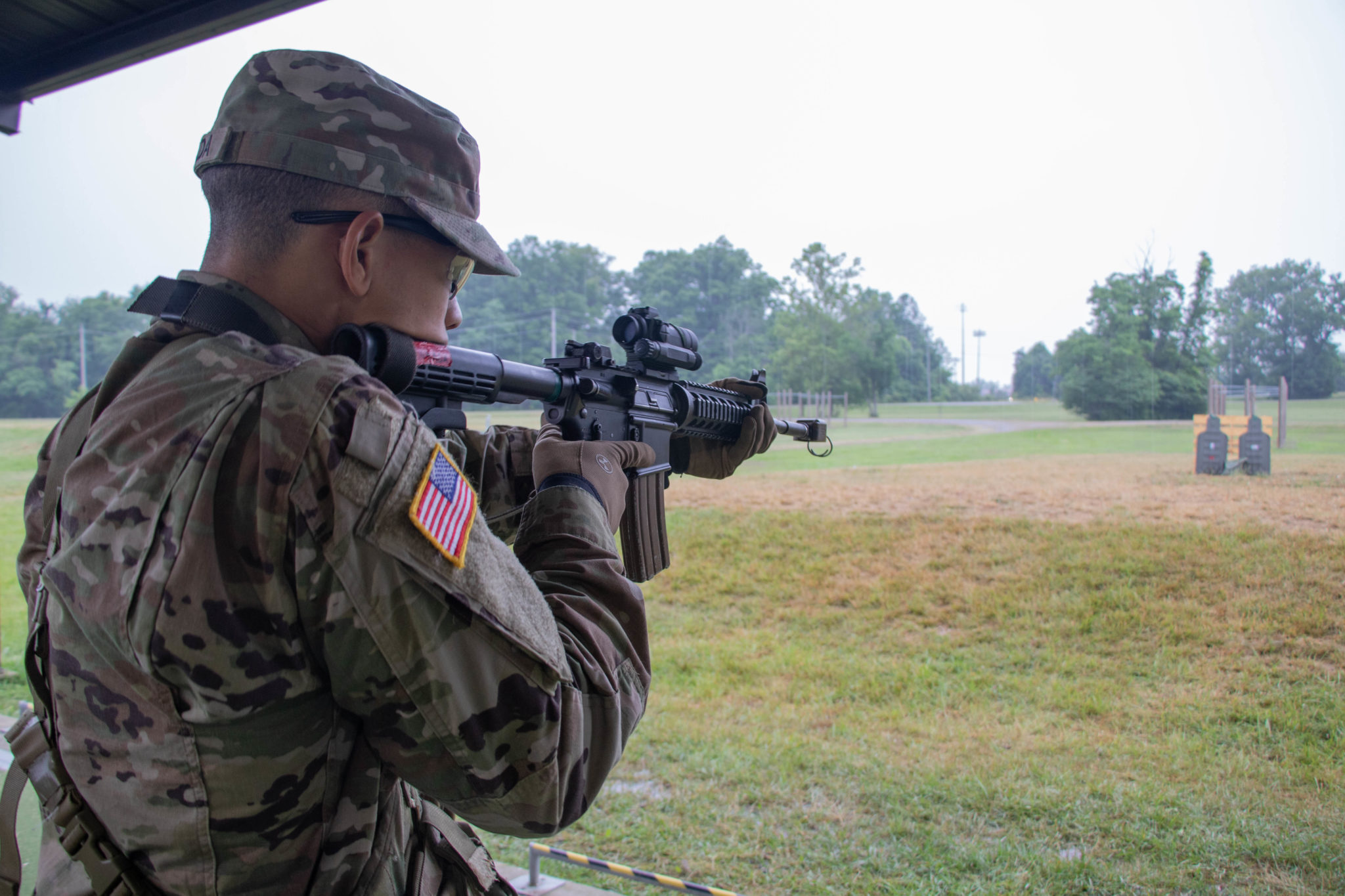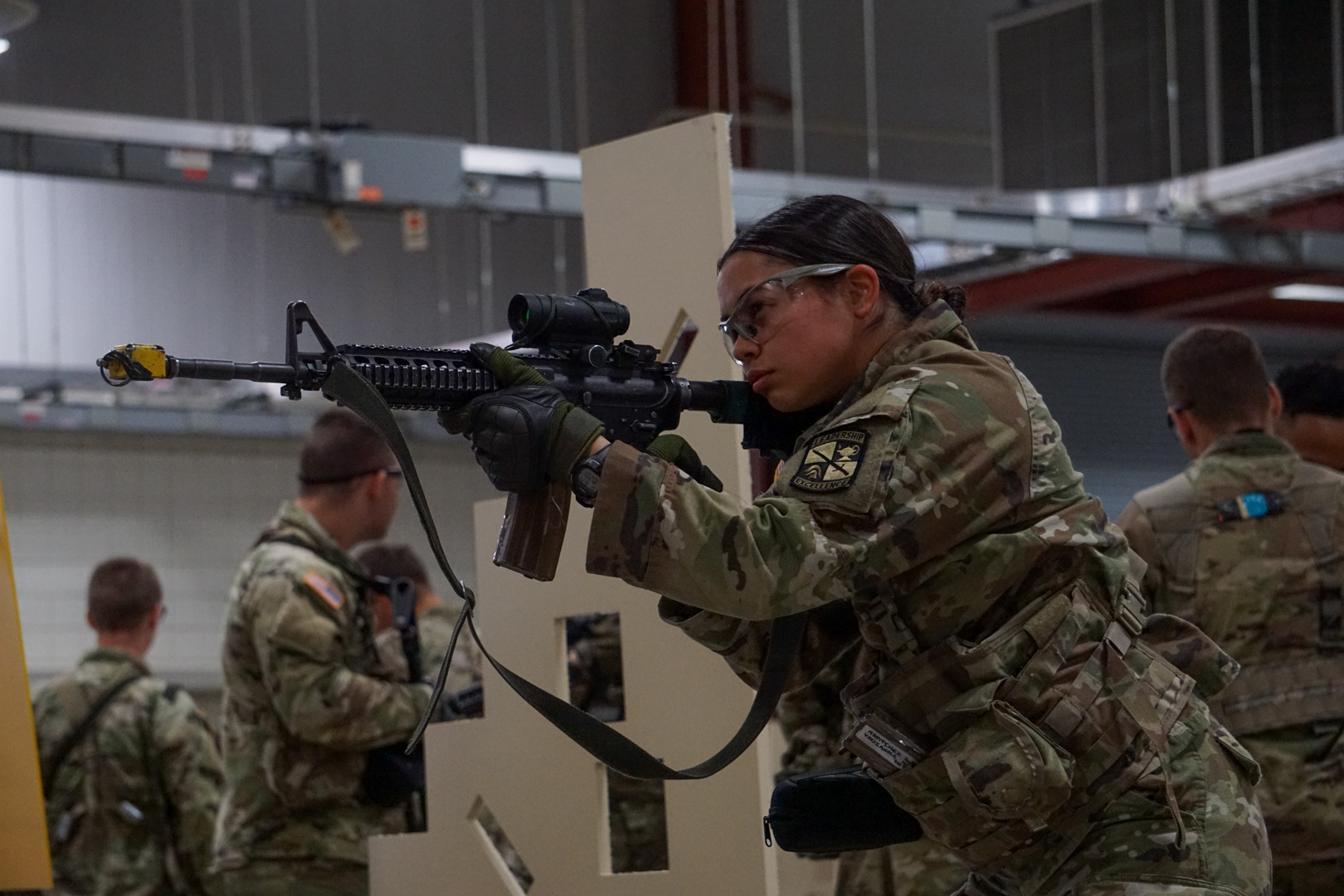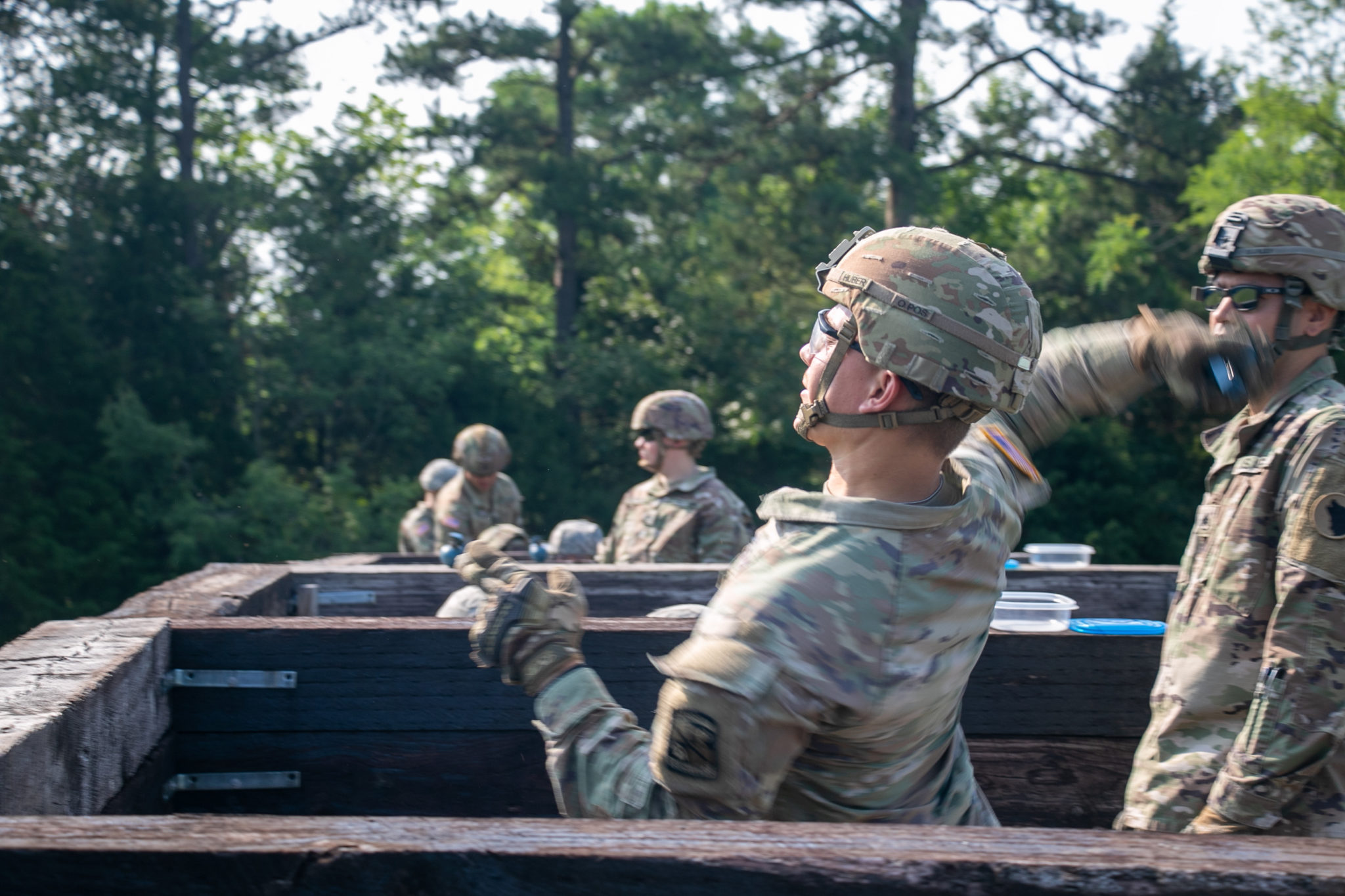FORT KNOX, Ky. — Spirit and morale were high within 7th Regiment, Advanced Camp, Bravo Company, 4th Platoon yesterday, as they completed another Field Training Exercise mission and took another step toward graduating.
Cadets performed a platoon-level deliberate attack on an enemy strong point. Penn State University Cadet Brian Hobbs, from Fairfax, Virginia, said his platoon’s mission went according to plan, with only a few hiccups.
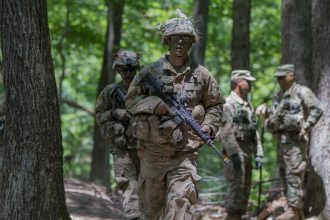
Cadets from 7th Regiment, Advanced Camp, move to their next position after attacking an objective during the Field Training Exercise (FTX) on July 20 at Fort Knox, Kentucky. The FTX puts Cadets in mock-combat scenarios to see how they perform under pressure. | Photo by Reagan Zimmerman, CST Public Affairs Office
He claimed it could not have gone that smoothly without the platoon’s teamwork.
“I had a lot of support from all of my peers so that made it all run a lot smoother,” Acting Platoon Leader, Cadet Sydney Smith, from Saint Louis, Missouri, and attending Colorado State University, said. “A lot of the friction points [that happened], my platoon sergeant and squad leaders fixed before it even became a problem for me.”
Smith said 4th Platoon does not always perform this well together.
“What has been interesting over the course of Advanced Camp is I have seen a completely different platoon depending on who is in leadership,” Smith said.
What Makes a Good Leader?
Good leadership is important for the success of a platoon. So, what makes a good leader, a good leader?
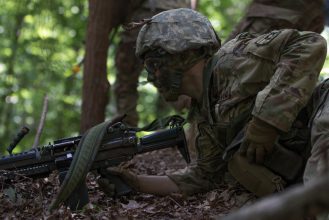
A Cadet from 7th Regiment, Advanced Camp, reloads the M-240B machine gun while attacking an objective during the Field Training Exercise (FTX) on July 20 at Fort Knox, Kentucky. The FTX puts Cadets in mock-combat scenarios to see how they perform under pressure. | Photo by Reagan Zimmerman, CST Public Affairs Office
For Smith, it is never thinking about herself.
“The word that comes to mind is selflessness. I try to keep the mindset that these people aren’t serving me but I am serving them,” Smith said. “I am going to work my ass off for them because they are the reason why I can even achieve missions and why I am here.”
Hobbs sees a good leader as someone who leads by example.
“A good leader to me is someone who doesn’t necessarily have to say something. The best leaders in my life, their presence says more than anything that their mouth ever could,” Hobbs said. “They are competent but they have a presence that is unmistakable and they lead from the front and by example more than anything else.”
The last thing Cadets see in good leaders is someone who always supports the people around them.
“If you are not supporting your subordinates and soldiers, they are not going to want to support you when you fall down and when you struggle,” Smith said. “That is why you want to build a team.”
How to Build a Team
University of South Carolina Military Science Instructor, Lt. Col. Louis Frketic, believes that creating a well-oiled team requires three steps: storm, norm and perform.
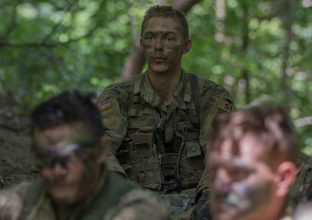
Cadet Dillon McKinley, from the University of South Florida, talks about what his platoon did well during an After Action Report at the Field Training Exercise (FTX) on July 20 at Fort Knox, Kentucky. The FTX puts Cadets in mock-combat scenarios to see how they perform under pressure. | Photo by Reagan Zimmerman, CST Public Affairs Office
“Storm means you come together as a group of people and you are still getting to know each other. You storm together and do some things together and then you norm. You start to create standards and common practices for doing things. Then, you go out and perform with your standards as a group.”
Aside from creating standards, there is also a mindset that can set a platoon apart from others, according to Hobbs. If a platoon’s morale is high, they are more likely to complete a mission.
During 4th Platoon’s mission, the platoon received a visit from Training and Doctrine Command (TRADOC) Deputy Commanding General, Lt. Gen. Theodore Martin.
Because they were under the watchful eye of the Lt. Gen. Martin, the leadership wanted to give the mission everything they had, so they worked hard to stay motivated and it rubbed off on others.
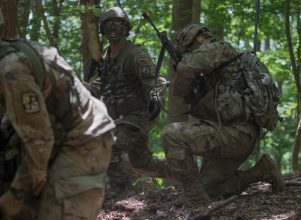
A Cadet from 7th Regiment, Advanced Camp, acts as a squad leader and yells commands to his Cadets while attacking an objective during the Field Training Exercise (FTX) on July 20 at Fort Knox, Kentucky. The FTX puts Cadets in mock-combat scenarios to see how they perform under pressure. | Photo by Reagan Zimmerman, CST Public Affairs Office
“I think it starts from the top down,” Hobbs said. “When the platoon leader and the leadership have energy and are excited to be here conducting a mission, everybody else does as well.”
Even though they did well, there were still points where they did the wrong thing. Those small mistakes are important for creating a strong platoon.
“All the times we messed up, those are the memories and experiences that stick with me. I think that is true for all of us. It brings us all closer,” Hobbs said. “It starts with having that open mindset that it is not about being an individual, it’s about being a team.”

